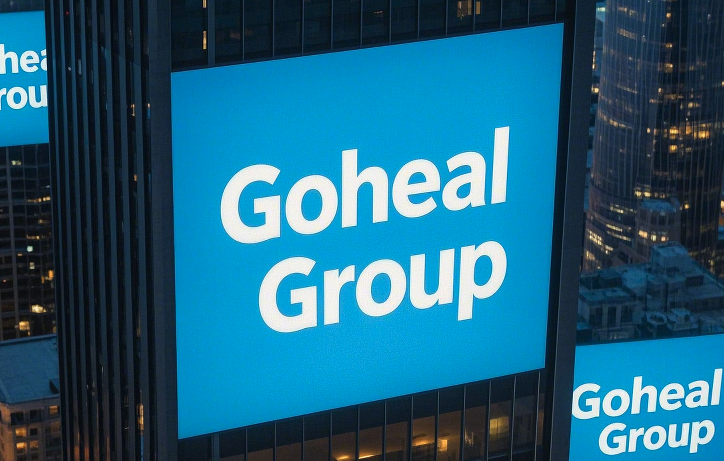"Buy stocks in prosperous times and hold gold in troubled times." The fluctuations in the capital market are never without trace. When the economy is booming, stock prices are high and investors are confident; when the economy enters a downward cycle, market confidence is shaken, stock prices plummet, and many listed companies fall into the quagmire of market value management, and even chain reactions such as market value evaporation, financing obstruction, and shareholder reduction.

American Goheal M&A Group
How should companies stabilize their market value during economic downturns? Should they shrink their defense and reduce capital operations, or expand against the trend and consolidate market confidence through mergers and acquisitions, repurchases, etc.? As a deep participant in the global M&A field, Goheal has long studied the cyclical challenges of the capital market and has accumulated rich experience in market value management. Today, we will reveal those listed companies that can still maintain their position during economic downturns. How do they do it?
Cyclic law of the capital market: Why is it difficult for companies to stabilize their market value during economic downturns?
The capital market is like the tide, with rising tides and ebbs. During the economic upswing, the market is full of optimism, capital is abundant, and investors rush in, driving stock prices up continuously; when the economy is down, the market enters a "winter mode", corporate profitability is limited, investor confidence declines, and capital outflows occur, resulting in large fluctuations in market value.
During the economic downturn, listed companies face the following difficulties:
1. Tightening of financing channels: Bank credit is tightened, and it is more difficult to raise funds in the capital market, resulting in insufficient liquidity for companies.
2. Declining market confidence: Investors are generally conservative, risk aversion is rising, and stock prices are under pressure to fall.
3. Increased debt pressure: Many companies expand through debt during the economic upswing, but when the economy slows down, debt pressure emerges, affecting the stability of the company's operations.
4. Unrest in the industrial chain: Supply chains are damaged, demand is weak, and corporate profitability declines, affecting the market's valuation expectations of the company.
In this case, if listed companies lack an effective market value management strategy, they are likely to fall into a vicious cycle of "selling more when prices fall, and selling more when prices fall". So, what are the ways to break the deadlock during the trough of the capital market?
How to stabilize market value during an economic downturn? Four strategies of capital masters
1. "Cash is king" principle: counter-cyclical reserve of working capital
During the economic downturn, the importance of cash flow is particularly prominent. Whether a company can survive the market winter depends on whether it has enough "food and grass" on hand. Many companies blindly expanded during the market boom, resulting in the depletion of working capital during the economic downturn, and eventually fell into operational difficulties.
Goheal observed that those companies that can stabilize their market value during the economic downturn often start to deploy "cash reserves" during the boom cycle, ensuring sufficient liquidity by reducing leverage, optimizing debt structure, and reducing capital expenditures. When the market enters a trough, these companies can maintain operations with healthy cash flow, while also seizing the opportunity of market miskilling and acquiring high-quality assets at a low price.
2. Repurchase and dividends to enhance market confidence
When the stock price falls sharply, the most concerned issue for investors is: Is the company confident in maintaining its market value? At this time, share repurchases and stable dividends become important means to boost market sentiment.
The essence of share repurchases is to reduce the number of shares outstanding in the market, increase earnings per share, and thus boost stock prices. Goheal pointed out that reasonable share repurchases can not only increase shareholder returns, but also release management's confidence in the company's future development.
At the same time, a continuous and stable dividend policy can enhance investors' confidence in holding shares, especially in economic downturns, stable cash dividends often attract long-term investors, thereby alleviating the downward pressure on stock prices.
3. Countercyclical M&A: Absorbing high-quality assets at low prices
Economic downturns are often the best time to "bottom-fish" high-quality assets. Many industry leaders will increase capital operations when the market is down and enhance their competitiveness through mergers and acquisitions. For example, during the 2008 financial crisis, many international giants carried out large-scale mergers and acquisitions when the market was at its lowest, thereby achieving exponential growth after the economic recovery.
In recent years, Goheal has led a number of countercyclical M&A transactions to help listed companies accurately capture high-quality assets during downturns. For example, a technology company acquired a competitor's core patent technology at a market low, successfully increased its market share, and obtained excess returns after the economic recovery.
4. Enhance market expectations: Strengthen information disclosure and stabilize investor sentiment
In a market downturn, investors' confidence in the company's future development direction is crucial. At this time, a transparent information disclosure mechanism can effectively alleviate the market's anxiety. For example, regularly publishing operating conditions, performance guidance, long-term development strategies, etc. can send a signal to the market that the company is operating steadily.
At the same time, Goheal observed that many excellent companies will actively interact with investors during economic downturns, such as holding investor meetings, publishing industry research reports, and accepting media interviews, in order to enhance the market's recognition of corporate value.
Conclusion: After the cold winter, how to welcome the next highlight moment?
Cyclical challenges in the capital market are inevitable, but those companies that truly have a long-term vision are often not troubled by short-term market fluctuations. Instead, they stabilize their market value through refined capital operations, and even accumulate strength in the market downturn to prepare for the next growth cycle.
So, what market value management strategy do you think is most effective in the current market downturn? If you are a manager of a listed company, would you choose cash reserves, repurchase dividends, or counter-cyclical mergers and acquisitions? Welcome to leave a message in the comment area to discuss and explore the wisdom of the capital market together!

Goheal Group
[About Goheal] Goheal is a leading investment holding company focusing on global mergers and acquisitions. It has deep roots in the three core business areas of acquisition of controlling rights of listed companies, mergers and acquisitions of listed companies, and capital operations of listed companies. With its profound professional strength and rich experience, it provides companies with full life cycle services from mergers and acquisitions to restructuring and capital operations, aiming to maximize corporate value and achieve long-term benefit growth.